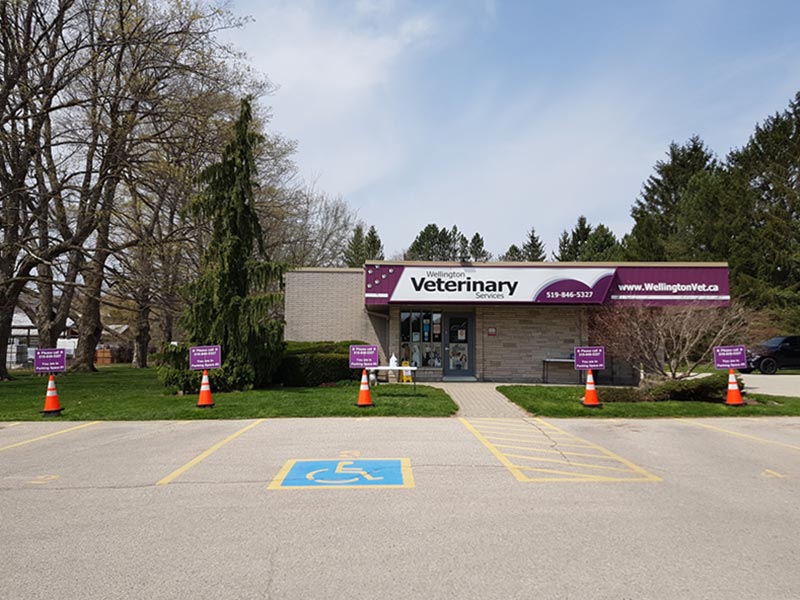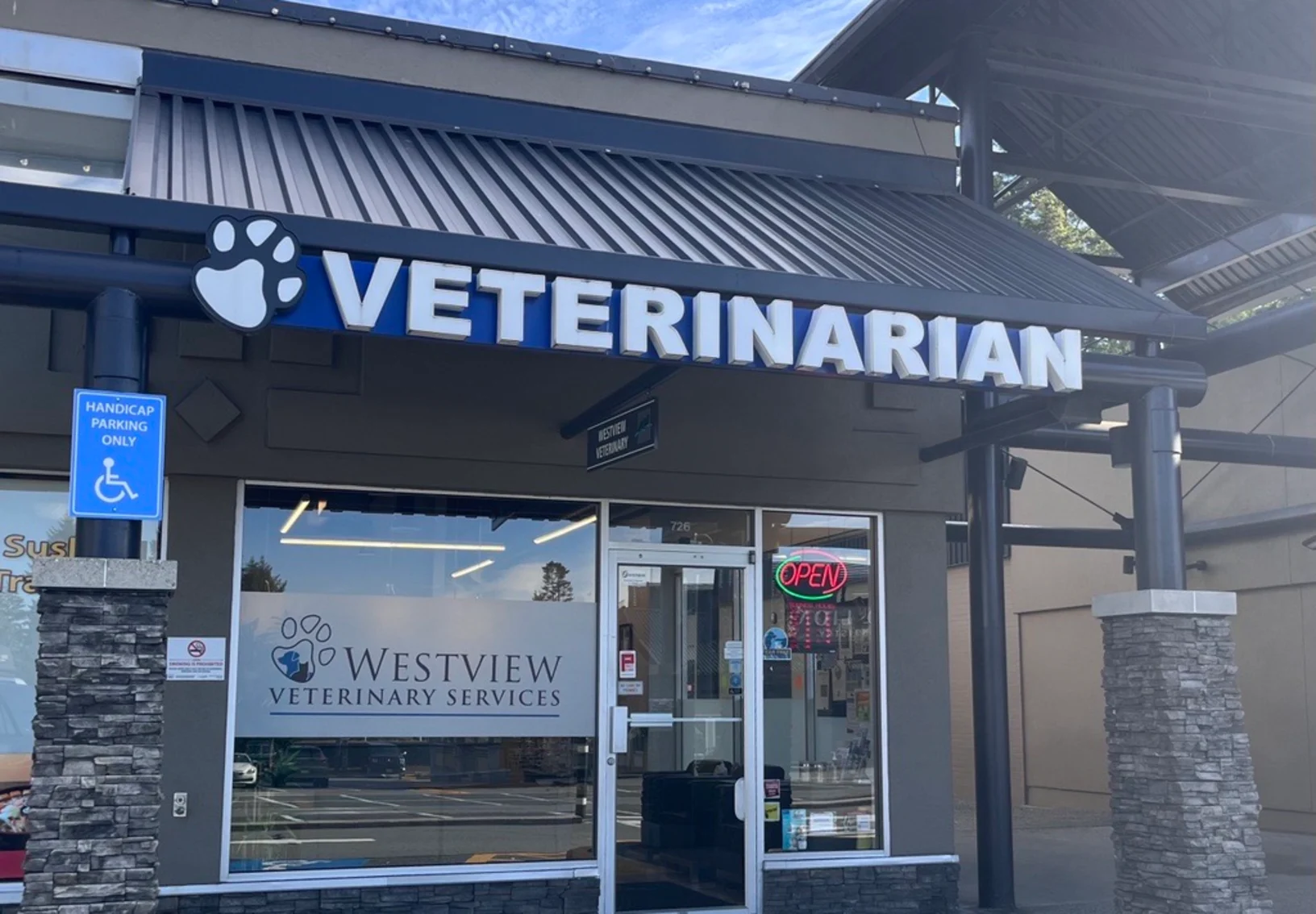Expert tips for navigating emergency Veterinary care
Wiki Article
Exactly How a Veterinary Specialty Hospital Can Treat Your Animal's Disorders With Advanced Techniques
Veterinary specialty hospitals play a vital duty in attending to intricate health problems in pets. They use advanced strategies and modern technologies that improve medical diagnosis and therapy. With accessibility to specialized services, animal proprietors can locate customized services for their animals' ailments. This increases crucial questions concerning the specific approaches employed and the benefits they give. Understanding these components can notably impact a pet's healing journey.Understanding the Role of Veterinary Specialty Hospitals
Although main care vets give important services for pet wellness, vet specialty hospitals play a crucial function in addressing intricate clinical conditions that call for sophisticated diagnostics and therapy. These facilities are furnished with specialized technology and seasoned experts who concentrate on certain locations of veterinary medication, such as oncology, neurology, and cardiology.Veterinary specialty hospitals facilitate a joint approach, frequently operating in conjunction with a family pet's main vet to develop complete treatment strategies. They supply access to sophisticated imaging strategies, such as MRI and CT scans, which are not generally offered in common facilities. On top of that, these hospitals use critical care unit for seriously ill pet dogs, guaranteeing day-and-night tracking and support.
Specialized Solutions Used by Veterinary Experts
Veterinary specialists offer necessary solutions that enhance pet dog health care, particularly via advanced diagnostic imaging strategies. These tools make it possible for exact assessments of intricate medical conditions, bring about extra effective targeted treatment strategies. By integrating these specialized solutions, vet hospitals can significantly boost individual results and total wellness.Advanced Diagnostic Imaging
Advanced diagnostic imaging plays a crucial duty in modern-day veterinary medicine, enabling experts to acquire thorough insights into a pet dog's health. Methods such as X-rays, ultrasound, calculated tomography (CT), and magnetic resonance imaging (MRI) allow veterinarians to imagine inner frameworks without intrusive procedures - Learn More. These advanced imaging methods aid in detecting a range of problems, from tumors and cracks to organ problems. By offering clear images, they enhance the accuracy of analyses, which is essential for effective treatment planning. Furthermore, specialized veterinary radiologists translate these images, guaranteeing that subtle problems are not forgotten. Eventually, progressed diagnostic imaging contributes in supplying substantial treatment, as it enables early detection and intervention in a pet's clinical issues
Targeted Treatment Strategies
Targeted therapy strategies are important for attending to the specific health requirements of pet dogs, making sure that each pet obtains customized treatment tailored to its distinct condition. Veterinary professionals establish these strategies based upon thorough evaluations, consisting of advanced analysis imaging and lab tests. By focusing on the private family pet's diagnosis, breed, age, and lifestyle, specialists can prescribe efficient therapies, varying from medication adjustments to medical interventions. These plans likewise integrate follow-up care and keeping track of to track the animal's progress and make essential adjustments. This method promotes optimal outcomes and improves the total lifestyle for pets dealing with complex health and wellness challenges. Inevitably, targeted therapy plans represent a commitment to providing the greatest criterion of veterinary care.Advanced Diagnostic Techniques for Accurate Diagnoses
As pets encounter progressively intricate wellness difficulties, the combination of innovative diagnostic techniques has come to be essential for achieving precise diagnoses. Veterinary specialty hospitals use state-of-the-art imaging modern technologies, such as MRI and CT checks, to imagine interior frameworks with exceptional clarity. These techniques enable vets to determine abnormalities that might not show up through conventional methods.Along with imaging, progressed lab tests, consisting of hereditary and biomarker evaluations, offer crucial insights right into underlying problems. These examinations make it possible for vets to spot conditions at earlier phases, assisting in prompt treatment. The use of endoscopy enables for direct visualization of interior body organs, assisting in the diagnosis of respiratory and stomach concerns.
Cutting-edge Treatment Options for Facility Conditions
Ingenious therapy alternatives for complicated problems in family pets have become an important focus within vet specialty hospitals. Making use of cutting-edge analysis tools, these centers boost their capability to identify issues accurately and customize ideal treatments. Veterinary. Additionally, the application of minimally invasive procedures and advanced rehabilitation methods supplies family pets a far better possibility at recuperation with minimized painAdvanced Diagnostic Tools
While the landscape of vet medication proceeds to evolve, advanced analysis tools have emerged as crucial assets for addressing intricate conditions in pets. These innovative innovations, including digital imaging, ultrasound, and molecular diagnostics, enable vets to acquire specific information regarding a pet's health standing swiftly. High-resolution imaging techniques can disclose intricate details of internal structures, allowing precise assessments of injuries or conditions. In addition, hereditary testing gives insights into genetic problems, directing customized therapy strategies. By leveraging these innovative diagnostic devices, vet specialty hospitals can enhance their ability to identify conditions that might have formerly gone unseen. Eventually, these innovations add to enhanced results and improve the overall high quality of care offered to beloved pet dogs.Minimally Invasive Procedures
Advancements in veterinary medicine have actually led the way for minimally intrusive treatments, which offer brand-new therapy alternatives for complex conditions in pet dogs. These ingenious techniques, such as laparoscopy and endoscopy, enable vets to perform surgeries with smaller sized lacerations, decreasing injury and healing time. By using specialized instruments and electronic cameras, veterinarians can identify and deal with concerns like tumors, food poisonings, and joint issues with precision - Learn More. This technique reduces discomfort and leads to quicker recovery, making it possible for pet dogs to go back to their regular tasks faster. Additionally, minimally intrusive treatments often lead reference to much less scarring and a lower risk of issues. As veterinary specialty hospitals embrace these sophisticated approaches, pet owners can really feel extra positive in their animals' care and overall wellnessAdvanced Rehab Techniques
As veterinary medicine evolves, advanced recovery methods are coming to be essential for handling complex problems in animals. These methods encompass a variety of ingenious treatment options, consisting of hydrotherapy, laser therapy, and physical therapy. Hydrotherapy utilizes water resistance to improve movement and strengthen muscles, beneficial for family pets recouping from surgery or injury. Laser therapy promotes healing by lowering swelling and discomfort, cultivating quicker recuperation times. Physical therapy employs targeted workouts to boost toughness and versatility, customized per family pet's details demands - Veterinary. Additionally, techniques like acupuncture and chiropractic adjustments can additionally sustain rehab by relieving discomfort and improving overall well-being. Veterinary specialty hospitals are progressively including these strategies, making sure animals obtain complete care that resolves both psychological and physical recovery, inevitably improving their lifestyleThe Significance of a Multidisciplinary Approach
A multidisciplinary approach in vet care considerably improves the therapy results for family pets, as it integrates experience from different specializeds to address complicated health concerns. This collective technique involves veterinarians, specialists, service technicians, and assistance staff collaborating to create thorough treatment strategies customized per pet's distinct demands. By incorporating knowledge from fields such as surgical procedure, inner medicine, oncology, and rehab, vets can determine hidden problems that might otherwise go unnoticed.Moreover, this approach cultivates communication amongst employee, guaranteeing that all facets of a family pet's health and wellness are considered. For circumstances, a pet dog recovering from surgery might benefit from input from both a cosmetic surgeon and a recovery professional, resulting in an extra efficient recuperation process. Ultimately, a multidisciplinary method not just boosts the top quality of care however additionally boosts the total health of pet dogs, giving them with the most effective possibility for an effective recuperation and long-lasting health.
Cutting-Edge Modern Technology in Veterinary Medicine

Telemedicine has likewise emerged as a necessary resource, enabling veterinarians to talk to pet owners remotely, therefore helping with timely treatments. Additionally, the integration of expert system in analyzing medical data adds to a lot more reliable treatment plans customized to individual demands. Sophisticated research laboratory devices allows for rapid blood analysis and virus detection, promoting timely medical responses. As vet specialty hospitals proceed to integrate these improvements, they not just boost the quality of treatment but likewise substantially boost the total wellness of animals.
Success Stories: Real-Life Instances of Family Pet Recuperation
Countless heartwarming success stories highlight the impressive healings of animals treated at vet specialty hospitals. One such situation included Bella, a Golden Retriever diagnosed with an extreme orthopedic issue. After advanced medical intervention and recovery, Bella was not only able to walk once again but likewise to run joyfully in the park, much to her owners' pleasure.An additional inspiring tale features Max, a cat with chronic kidney illness. Through specialized dietary administration and innovative treatments, Max's condition stabilized, permitting him to regain his power and appetite. His owners were pleased to see him go back to his playful self.
Luna, a Dachshund who suffered a spinal injury, underwent advanced treatments, leading to an incredible recovery. These stories highlight the expertise and concern discovered in vet specialty hospitals, showcasing their ability to recover wellness and joy to cherished animals and their households.
Frequently Asked Concerns
What Should I Anticipate During My Pet's Specialty Examination?
During a specialty consultation, family pet proprietors can expect a thorough assessment, thorough case history discussions, analysis examinations, and tailored therapy choices. The veterinary professional will certainly offer understandings and suggestions for the family pet's certain health and wellness needs.Just How Can I Discover a Veterinary Specialty Hospital Near Me?
To find a vet specialty hospital close by, one can utilize online search engines, examine local directory sites, or look for referrals from main veterinarians. Furthermore, pet proprietor forums can supply beneficial understandings and experiences regarding nearby centers.Are Specialty Services Covered by Family Pet Insurance Coverage?
Specialty solutions might be covered by pet dog insurance, yet protection varies by plan. Owners should thoroughly assess their insurance policy plan information and consult their company to recognize the degree of insurance coverage for specialty veterinary solutions.How Much Time Will My Pet dog's Therapy Take?

The duration of a family pet's therapy can vary substantially, usually ranging from a few days to a number of weeks. Variables affecting this timeline consist of the particular condition, therapy type, and the pet's total health and action.
What Are the Costs Related To Specialty Veterinary Treatment?
The costs connected with specialty vet care can differ extensively, typically varying from hundreds to hundreds of bucks. Factors influencing these costs consist of the intricacy of the condition, called for treatments, and analysis procedures needed for effective treatment.Veterinary specialty hospitals play a vital role in resolving complicated wellness problems in pets. Primary care veterinarians provide crucial services for pet health and wellness, vet specialty hospitals play a crucial function in addressing intricate medical conditions that need sophisticated diagnostics and treatment. Veterinary specialty hospitals assist in a collaborative method, often working in combination with a pet's key vet to produce detailed treatment plans. Ingenious therapy alternatives for complicated conditions in family pets have emerged as a crucial emphasis within vet specialty hospitals. A multidisciplinary approach in vet treatment greatly boosts the therapy outcomes for pets, as it integrates proficiency from different specialties to address intricate health and wellness issues.
Report this wiki page